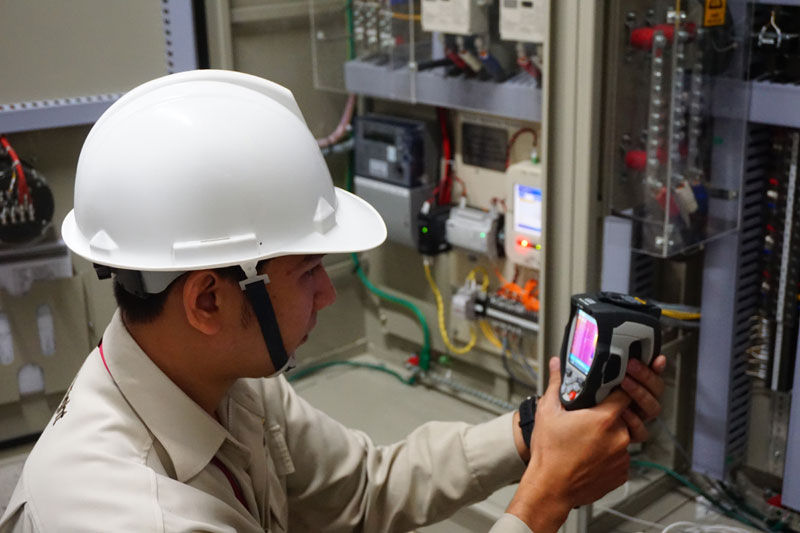Circular 48/2018/TT-BLDTBXH: Overview of the Industrial Electrical Engineering Intermediate-Level Curriculum
On December 28, 2019, the Ministry of Labor, Invalids and Social Affairs issued Circular 48/2018/TT-BLDTBXH regulating the minimum amount of knowledge, competency requirements that learners must achieve after graduating from intermediate and college levels in the fields of electrical, electronic, and telecommunications engineering.

Circular 48/2018/TT-BLDTBXH: Overview of Industrial Electrical Engineering at Intermediate Level (Illustrative Image)
In the regulation on the minimum amount of knowledge, and the competency requirements that students must achieve after graduation from intermediate and college levels in the field of industrial electrical engineering issued with Circular 48/2018/TT-BLDTBXH, it is stipulated that industrial electrical engineering at the intermediate level is a field in which the practitioner specializes in designing, installing, inspecting, maintaining, and repairing electrical systems and industrial electrical equipment to meet technical requirements and ensure safety, fulfilling level 4 requirements in the Vietnamese National Qualifications Framework.
Individuals working in the field of Industrial Electrical Engineering are directly involved in designing, installing, operating, maintaining, servicing, and repairing electrical cabinets, electrical machines, production lines, and electrical equipment in production and business companies such as factories, enterprises, buildings, etc. under safe conditions. They may assume the roles and responsibilities of managerial staff, technical staff in production facilities, agencies, business units, and can self-organize and manage production, and repair electrical equipment.
To practice in the profession, workers must have good health and professional ethics, sufficient professional knowledge, and skills corresponding to their job position; handle tasks proactively, communicate and collaborate in teams, organize and manage the production process, and train and mentor lower-level workers in accordance with the specified level.
Additionally, practitioners need to engage in continuous learning to improve their professional competence, communication skills in foreign languages, expand social knowledge; develop carefulness, detail-orientedness, clarity; build professional awareness and passion for the profession.
Minimum amount of knowledge: 1,400 hours (equivalent to 50 credits).
Simultaneously, after graduation, learners have the competency to meet the requirements at the job positions in the industry, including:
- Installation of construction electrical systems;- Installation and operation of power supply systems;- Installation of electrical cabinets;- Repair, maintenance, and operation of electrical machines;- Installation of renewable energy electrical systems;- Installation of machine tool circuits;- Repair, maintenance, and servicing of machine tool circuits;- Business in electrical equipment.
Detailed information on the document is available at Circular 48/2018/TT-BLDTBXH, effective from February 10, 2019.
Le Vy
- Responsibilities of officials of the Ministry of Finance of Vietnam when they are issued Official Passports from November 19, 2024
- 06 solutions to enhance the effectiveness of social policy credit in the new phase in Vietnam
- Financial support level for the purchase and repair of transportation vehicles for the Economic - National Defense Corps in Vietnam from December 30, 2024
- Financial support levels for purchasing and repairing of medical equipment for the Economic - National Defense Corps in Vietnam from December 30, 2024
- Latest regulations on management and use of passports for officials and public employees of the Ministry of Finance of Vietnam
- New regulations on the procedures for veterinary sanitation inspection in Vietnam from January 6, 2025
-

- Responsibilities of officials of the Ministry ...
- 16:00, 23/11/2024
-

- 06 solutions to enhance the effectiveness of social ...
- 15:32, 23/11/2024
-

- Guidelines for registration and organization of ...
- 11:53, 23/11/2024
-

- Contents of audit service quality control in Vietnam
- 11:00, 23/11/2024
-

- Acts in violation of Law on Independent Audit ...
- 10:30, 23/11/2024
 Article table of contents
Article table of contents
